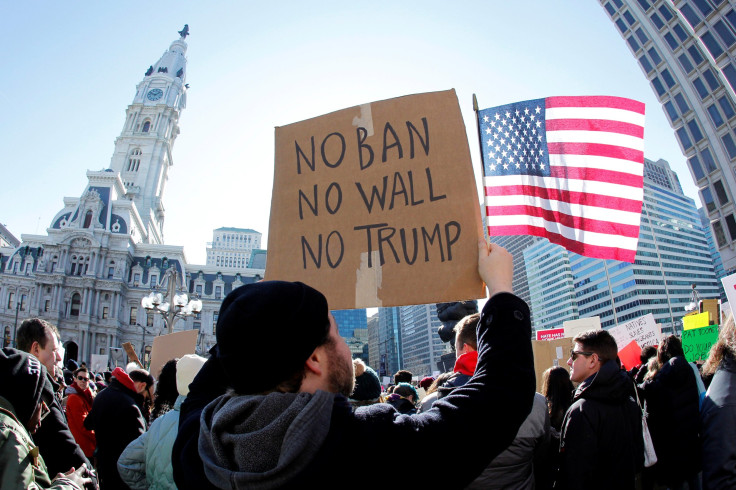Trump Travel Ban: Anti-Muslim Comments, Insulting Judge May Mean Defeat For President's Controversial Order

If the courts ultimately quash President Donald Trump’s executive order barring travel from seven Muslim-majority countries, he’ll likely have the conservatives who worked to block former President Barack Obama’s executive orders as well as his own behavior to thank.
The 9th U.S. Circuit Court of Appeals in San Francisco is considering whether to reinstate the ban, which was blocked nationwide by a federal judge in Seattle Sunday. The suit was one of several filed in the wake of the ban’s rollout Jan. 27. Four other judges also halted the ban, but those rulings were narrower.
The appellate court said no ruling would be forthcoming Tuesday. No matter which way the decision goes, the issue is likely to wind up in the Supreme Court, something Trump is more than willing to see through.
“Some things are law, and I’m all in favor of that, and some things are common sense,” he said Tuesday during a meeting with county sheriffs at the White House. “This is common sense.”
The executive order barred Syrians from entering the United States in definitely and travelers from Iran, Iraq, Libya, Somalia, Sudan and Yemen from entering for at least 90 days. The refugee program was suspended for at least 120 days.
During the election campaign, Trump pledged to institute a Muslim ban, something prohibited by the Constitution because it targets a particular religious group. Former New York Mayor Rudy Giuliani has said the president asked him how to get around that and Giuliani told him to focus on countries, not religion.
But the thinly veiled tactic may not sit well with the courts. That coupled with Trump’s attack on U.S. District Judge James Robart, a George W. Bush-appointee who issued the Seattle order, which could be construed as an attack on the independence of the judiciary, could spell doom for the ban despite legal precedent giving the president nearly absolute power in deciding who gets to enter the United States.
“The exclusion of aliens is a fundamental act of sovereignty … inherent in the executive power,” the Supreme Court said in 1950.
But Trump berated Robart as a “so-called judge” and also said it would be the judge’s fault if a terrorist attack occurred.
White House spokesman Sean Spicer denied the president doesn’t believe in judicial independence.
"There's no question the president respects the judicial branch and its ruling," Spicer said, adding, "I don't think there's any other way that you can interpret that, that the president has the discretion to do what's necessary to keep this country safe."
Trump also doesn’t accept polls that indicate Americans reject the ban.
A Quinnipiac poll released Tuesday indicated Americans oppose the temporary travel ban 51 percent to 46 percent and the halt to the refugee program 60 percent to 37 percent. Feelings were even stronger when it came to the indefinite ban on Syrians. Respondents rejected that 70 percent to 26 percent. They also saw the travel ban as a Muslim ban, 51 percent to 45 percent, and 56 percent said “homegrown jihadists” pose a much greater threat than “radicalized foreign visitors” (17 percent).
“Message to President Donald Trump: ‘Give me your tired, your poor, your huddled masses yearning to breathe free’ still has profound resonance with Americans,” said Tim Malloy, assistant director of the Quinnipiac University Poll, which queried 1,155 voters Feb. 2-6 and had an error rate of 2.9 percent.
© Copyright IBTimes 2024. All rights reserved.












